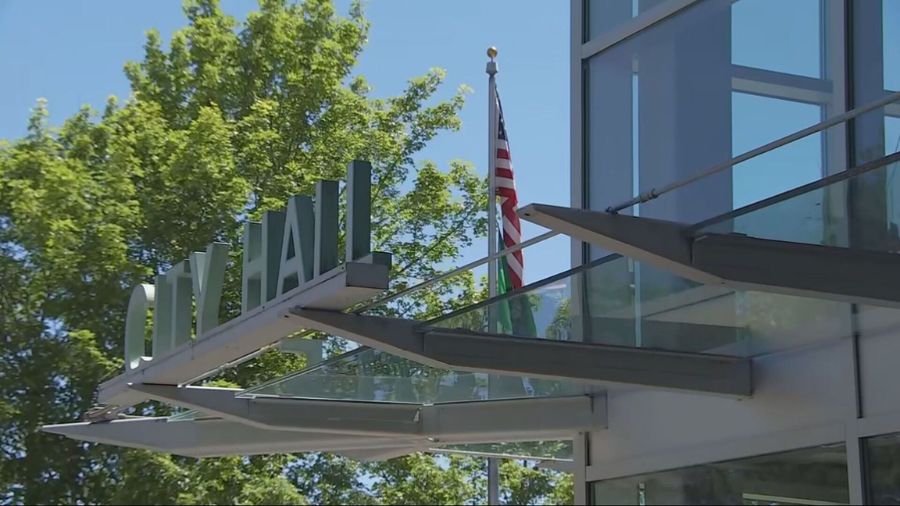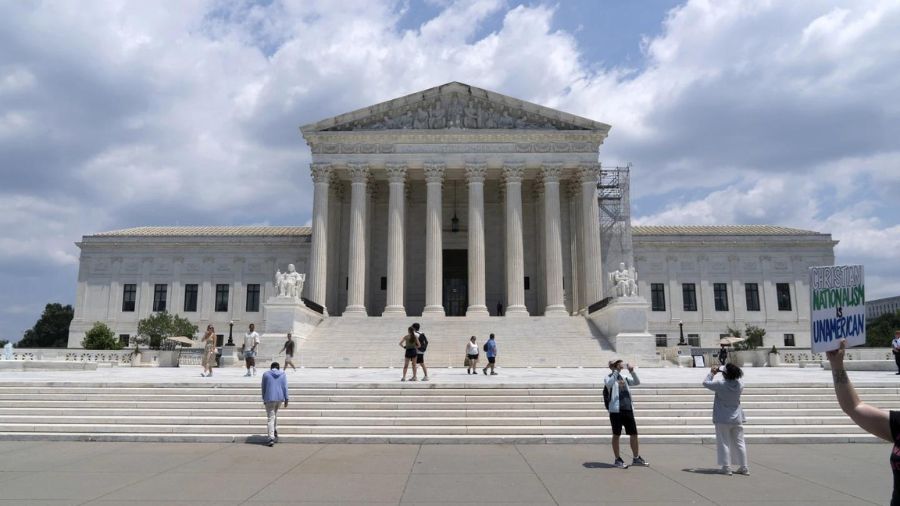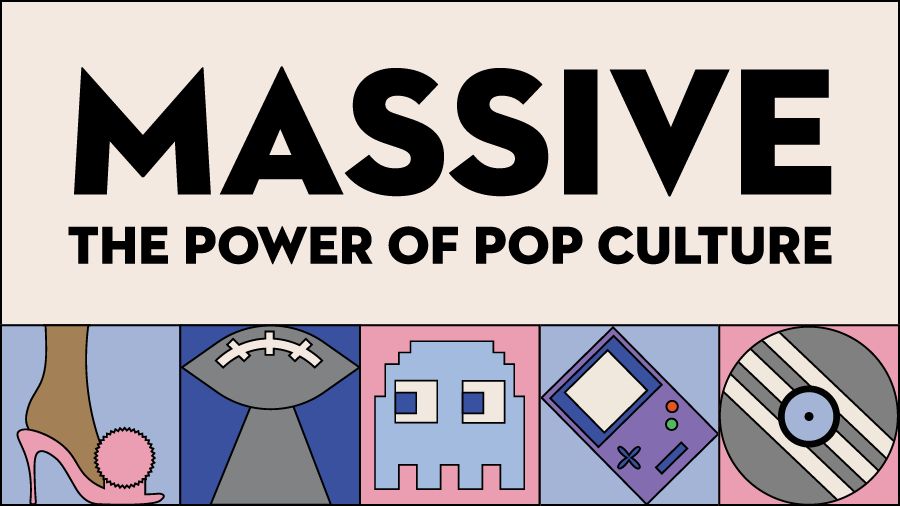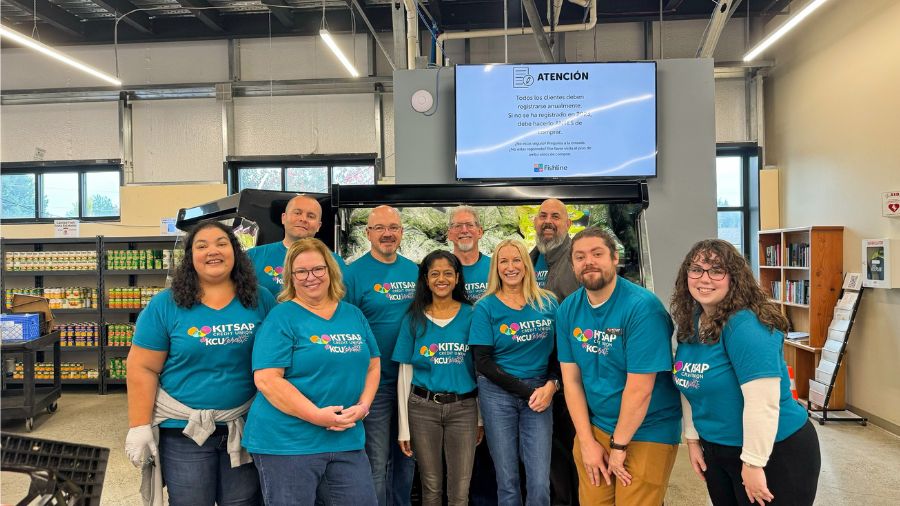Judge denies state GOP attempt to keep initiatives’ financial impact off ballot
Jun 8, 2024, 4:03 PM | Updated: Jun 9, 2024, 1:01 pm
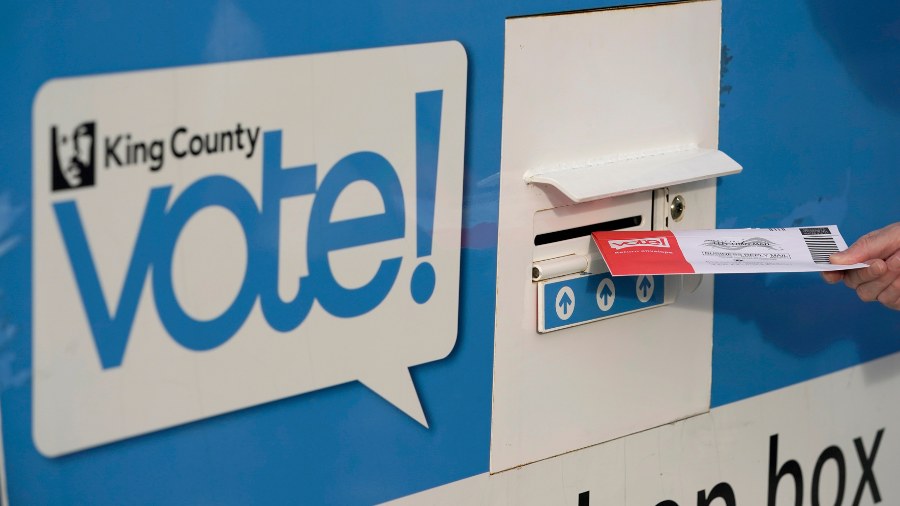
A person puts their ballot in a drop box on Oct. 27, 2020 at a library in Seattle. (File photo: Ted S. Warren, AP)
(File photo: Ted S. Warren, AP)
A Washington judge ruled Friday that what are known as “financial warning labels” must be included with initiatives on the November ballot.
Republican supporters had sued to stop public investment impact disclosures from appearing on three initiatives, one that would repeal the capital gains tax (I-2109), a second that would repeal the Climate Commitment Act (I-2117), and a third that would allow state residents to opt out of the state’s long-term care program (I-2124).
However, the measures require those financial disclosures, Thurston County Superior Court Judge Allyson Zipp said in a ruling from the bench. The decision is based on a recent law that requires the state attorney general to spell out how funding would be affected by initiatives that repeal, impose or change any tax or fee.
“The people are entitled to know the fiscal impact that their vote will have on public investments at the time that they cast their ballots,” she said.
But Thurston County Superior Court Judge Allyson Zipp ruled, Friday, Zipp noted the Washington State Legislature was clear when it established rules requiring the financial impact statements.
Critics say state lawmakers were less-than-clear about how much the laws, that the initiatives seek to roll-back, would cost voters.
More from MyNorthwest: The latest political news from in and around the Puget Sound region
Opponents of the measures, who said they would have massive impacts on the state’s ability to provide critical services, praised the judge’s decision.
“Their lawsuit had one inexcusable purpose: to hide the truth about the impacts of these initiatives from voters,” Aaron Ostrom, executive director of the progressive advocacy organization FUSE Washington, said in a statement. “They know they will lose if voters understand what these destructive, deceptive initiatives actually do.”
Initiative author Jim Walsh, who along with Deanna Martinez sued to keep the fiscal impact off the ballot, said in an email to The Associated Press that they were concerned the “warning label” would be “weaponized.”
“We don’t mind the idea of more information, said Walsh, chair of the state Republican Party and a state representative from Aberdeen. “What we’re concerned about is it won’t be impartial information. It will be partisan rhetoric, weaponized to make the initiatives sound bad. The fight isn’t over. We are going to continue to make the point that we want unbiased non-political information.”
In an earlier interview with KIRO Newsradio, Walsh argued the Democratic majority which passed the bill went to great lengths not to call the underlying legislation of the initiatives a “tax or fee.”
“The governor and attorney general argued these were something different. They were costs or fees in some cases,” Walsh said. “OK, fine. So, you’re sneaking them in saying they’re not taxes but now saying fiscal impact statements are supposed to apply to taxes. They are trying to have it both ways.”
Is it a tax or not? Attorney general sued over controversial ballot language
Martinez is the chair of Mainstream Republicans of Washington and is on the Moses Lake City Council.
Looking more at the ballot initiatives
The initiatives are just a few of the ones certified after the group Let’s Go Washington, which is primarily bankrolled by hedge fund executive Brian Heywood, submitted hundreds of thousands of signatures in support of them. Initiatives that would give police greater ability to pursue people in vehicles, declare a series of rights for parents of public-school students and bar an income tax were approved by lawmakers. Heywood did not immediately respond to a voicemail seeking comment.
Tim O’Neal, an analyst with the Washington Community Alliance, said in response to the decision that when voters don’t have all the facts, they are less likely to vote and have their voice heard.
“The Public Investment Impact Disclosure law is important to building the transparency we need to increase voter trust and participation in our constitutional democracy,” he said in a statement.
Initiative 2117 would repeal the state’s Climate Commitment Act, which works to cap and reduce pollution while creating revenue for investments that address climate change. It raised $1.8 billion in 2023 through quarterly auctions in which emission allowances are sold to businesses covered under the act.
Initiative 2109 would repeal the tax imposed on the sale or exchange of stocks, bonds and other high-end assets, with exemptions for the first $262,000.
Initiative 2124 will decide whether state residents must pay into Washington Cares, the state’s public long-term care insurance program.
How does Washington fix its eviction case backlog? A constitutional change is needed
The interpretation of HB 1876
This comes down to the interpretation of House Bill 1876, a law the legislature passed and Democratic Gov. Jay Inslee signed into law in 2022. It’s the first time HB 1876 has come into play in an election. (A PDF of the bill analysis can be found here.)
The law says fiscal impact disclosure must appear on the ballot within the ballot title for “any measure that repeals, levies, or modifies a tax or fee” and would cause a net change in state revenue.
Walsh and Martinez claimed the law doesn’t apply to the three measures and asked the court to bar Washington Attorney General Bob Ferguson from preparing statements on their fiscal impact and bar the secretary of state from certifying those statements.
But lawyers for the state said under the law, the public has a right to know an initiative’s financial impact.
Dr. Stephan Blanford, executive director of the Children’s Alliance, a nonpartisan child advocacy organization, said initiatives would give tax breaks to millionaires and billionaires while cutting funding for education. He also said the initiative to repeal the capital gains tax would push the state’s education system further into the red.
“By jeopardizing $8.1 billion in long-term care funding, I-2124 will put more tax pressure on Millennials and Gen Z to pay for a tidal wave of state Medicaid costs for aging Washingtonians, and increase the cost of care for millions of middle-income families,” he said.
The initiative to repeal the state’s carbon market “would allow more pollution across Washington, devastate funding air, water, and land protection, and cut funding to prevent wildfires and investments in transportation,” he said.
Contributing: Heather Bosch and Matt Markovich, KIRO Newsradio; The Associated Press



